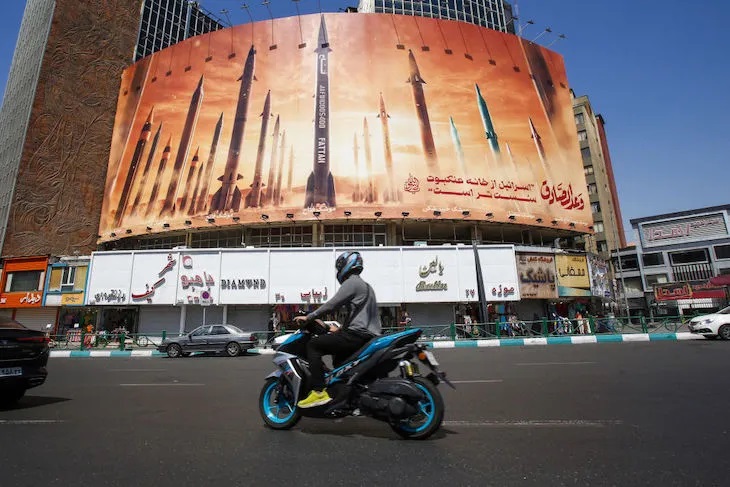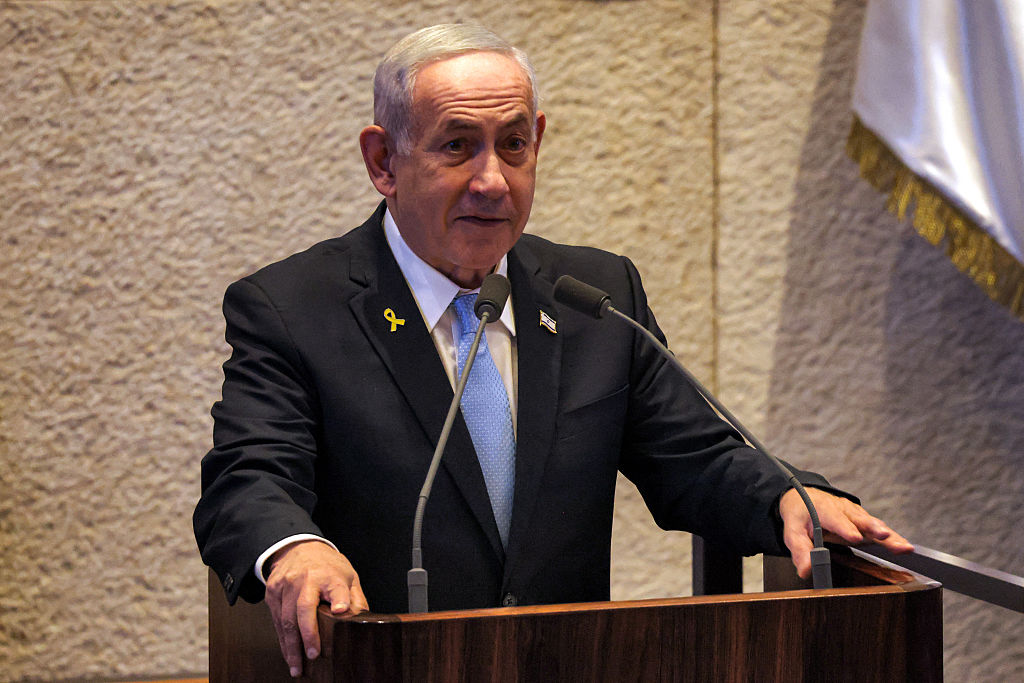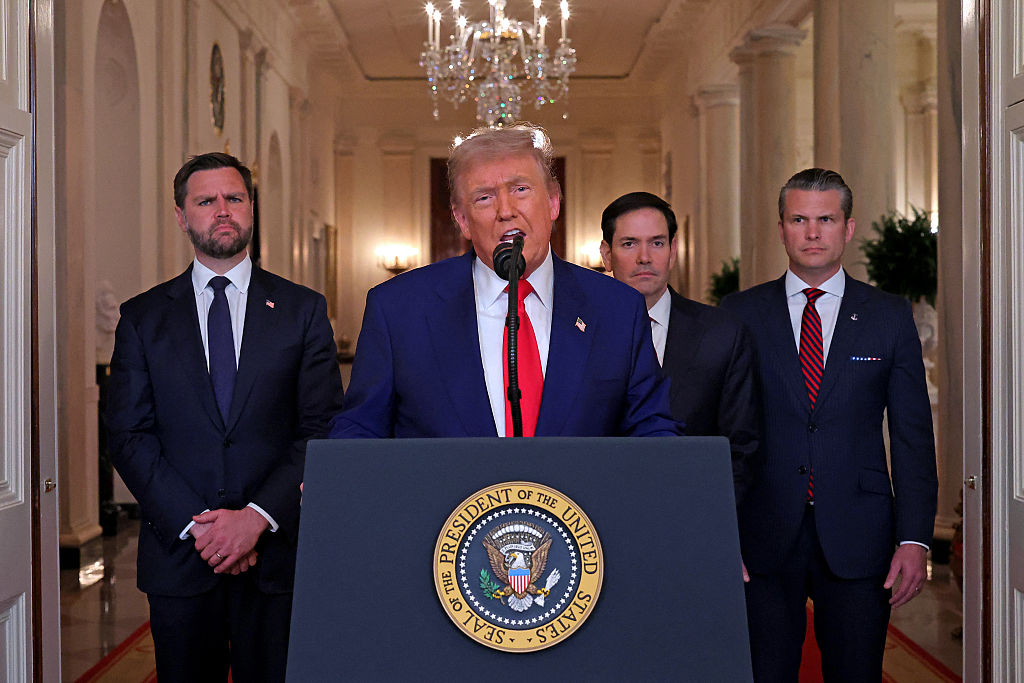Symbolism is important. Israel’s overnight missile attack against Iran was a warning to the ayatollahs residing in Tehran that it can hit any target, wherever and whenever it wants.
The missile is believed to have struck a military airfield near Isfahan, a city in central Iran, which is also the location of a major missile production complex and several nuclear facilities.
The messaging here was simple: in the future nothing will be off the table — including Iran’s nuclear facilities.
The fact that the attack took place on the eighty-fifth birthday of Iran’s ailing Supreme Leader Ali Khamenei should not be overlooked either, given that it was the diplomatic equivalent of a two fingered salute.
Israel was also keen to demonstrate, not just to the US, but also to the UK and every other country calling for restraint, that it, and no one else, will decide how Israel responds to hostile threats.
The latest round in what the former British ambassador to Lebanon Tom Fletcher has described as “high stakes poker” began when an Israeli missile struck the Iranian consulate annex in Damascus and killed seven members of the Islamic Revolutionary Guards Corps (IRGC) — including the senior commander Brigadier General Mohammad Reza Zahedi.
Iran’s response was to send more than 300 drones and missiles in an act so “telegraphed” — to use a boxing term — that Israel and its allies managed to shoot down 99 per cent of them before they could cause any real damage.
While Iran might have convinced some of its most loyal supporters that it would not be cowed by what it refers to as the Zionist state, in reality the Iranian leadership has fooled no one.
The act was a symbolic gesture designed to rally its discontented citizens, many of whom are no doubt wondering why the Islamic Republic wants to get involved in a shooting war with Israel it can’t win or afford, when inflation is running at an unsustainable 40 percent and salaries are around $300 a month.
Little wonder then that Tehran has tried to spin the latest Israeli missile attack as being so insignificant that it would not be worth their time responding.
But like all conflicts, the potential for miscalculation is always high, as President Vladimir Putin found to his costs when he invaded Ukraine two years ago and assumed that Kyiv would be under Russian rule within three days.
Following the Israeli missile strike, Fletcher told BBC Radio 4’s Today program that:
“We don’t know how much of an escalation this is for now. Clearly Iran is starting to signal that it is not necessarily a major escalation. They are playing it down. And of course Israel could have chosen to do something more dramatic.”
Israel, he added, is “clearly saying” to Iran that it can “dial it up” and that nuclear sites are not off-limits, despite Iran attempting to signal in the last few days “you don’t go near the nuclear sites.”
It is instructive to think that just a few days ago Israel was facing increasing international isolation following the death of seven humanitarian aid workers mistakenly killed in a botched Israeli air strike.
Today, the same Israeli government has shown its enemies that when push comes to shove, the US, the world’s only real military super power, will come to its aid, along with the UK and France. And perhaps, more importantly, so will Jordan and Saudi Arabia, two conservative Sunni states which are keen to have normal relations with Israel.
This article was originally published on The Spectator’s UK website.


























Leave a Reply